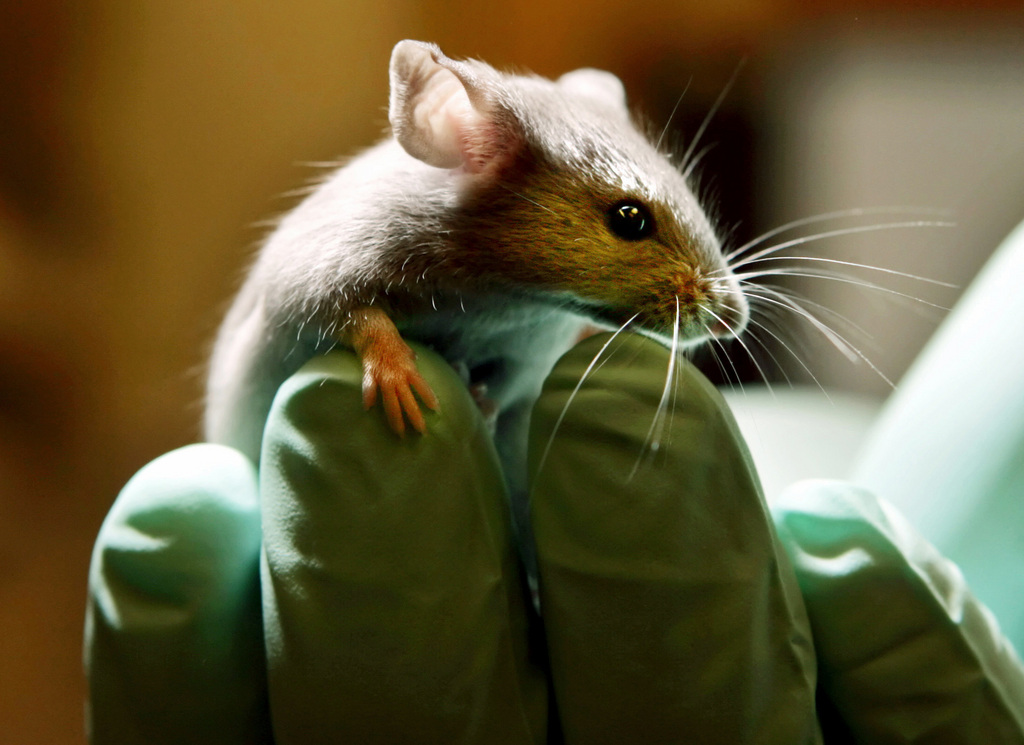
Animal testing numbers down

The number of animals used in experiments is continuing to fall, according to the Federal Food Safety and Veterinary OfficeExternal link. Most of them did not suffer or only very little. But more than 11,000 animals were subject to more severe testing.
More than 590,000 animals were used in testing in 2013, a drop of 2.7% on the year before. But the number of authorisations to conduct such experiments rose by almost 30%.
No animals were used in tobacco products or cosmetics testing.
The overall fall in numbers continues a trend from 2012, the office said. In all, just over 80% of the animals used were rodents, like rats and mice. Birds, such as poultry, were used in 10.9% of cases. Fish also featured in testing, as well as rabbits and primates.
Almost half of the laboratory animals experimented on in 2013 were in hospitals or institutes of higher education, a rise of 8% on 2012. The number of animals used in pure research rose slightly but fell for industrial research by around 15%.
Most animals were subject to the first category of research which does not cause any or only little suffering. This includes feeding experiments. The middle category concerned around 20% of the animals and the most severe category, in which strong pain or fear can be provoked,1.9%.
The revised Swiss animal protection law, which came into force in 2008, is one of the most strict worldwide. Any experiments on animals have to be approved first by the authorities and have to prove that the advantage to society outweighs the animals’ suffering. It also has to be shown that there are no alternative methods. However, animal rights groups have criticised this law as not going far enough to protect animals.

In compliance with the JTI standards
More: SWI swissinfo.ch certified by the Journalism Trust Initiative















![The four-metre-long painting "Sonntag der Bergbauern" [Sunday of the Mountain Farmers, 1923-24/26] had to be removed by a crane from the German Chancellery in Berlin for the exhibition in Bern.](https://www.swissinfo.ch/content/wp-content/uploads/sites/13/2025/12/01_Pressebild_KirchnerxKirchner.jpg?ver=f05a5a9c)














You can find an overview of ongoing debates with our journalists here . Please join us!
If you want to start a conversation about a topic raised in this article or want to report factual errors, email us at english@swissinfo.ch.